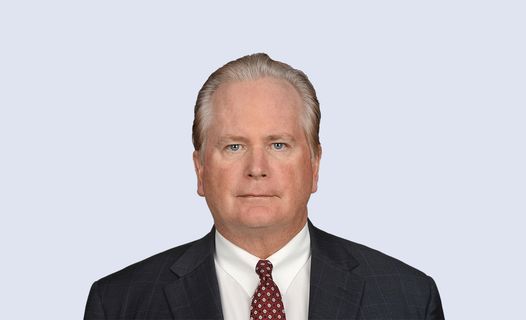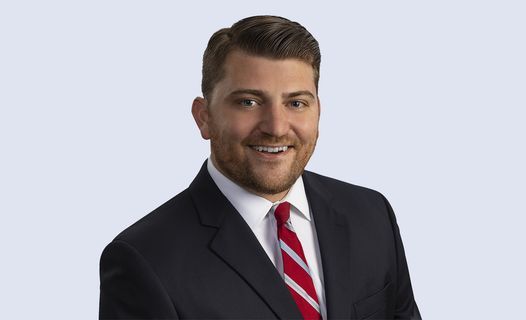It’s hard to keep up with all the recent changes to labor and employment law. While it always seems to evolve at a rapid pace, the last few months have seen an unprecedented number of changes. April 2017 was another month that saw an above-average number of dramatic developments, leading us to once again expand our summary even beyond a typical “top 10” list. In order to make sure that you stay on top of the latest developments, here is a quick review of the 13 biggest stories from last month that all employers need to know about:
1. Landmark Appeals Court Ruling Extends Title VII Protections To LGBT Employees
The 7th Circuit Court of Appeals became the first federal court of appeals in the nation to rule that sexual orientation claims are actionable under Title VII. In a full panel en banc decision, the court opened the door for LGBT plaintiffs to use Title VII to seek relief for allegations of employment discrimination and retaliation. The April 4 ruling is important to employers because it broadens the class of potential plaintiffs who can bring workplace claims against them, and will require employers to ensure fair and equal treatment to all applicants and workers regardless of their sexual orientation (read more here).
2. Federal Court Provides Roadmap For Misclassification Success – Sort Of
A federal appeals court in New York handed a massive victory to a car service enterprise, ruling that a group of workers seeking to collect overtime payments were not actually employees and were properly characterized as independent contractors. In issuing the April 12 ruling, the 2nd Circuit Court of Appeals provided what may superficially appear to provide a roadmap for technology businesses that digitally connect workers with consumers to understand, and avoid, misclassification risk. Upon a closer inspection, however, that roadmap may not always help such businesses arrive safely at their destinations, as the court took pains to point out the “narrow compass of our decision” (read more here).
3. President Trump Completes First 100 Days In Office
New presidents are often judged based on their accomplishments in their first 100 days in office. President Trump is no exception to that rule. The Trump administration passed that milestone date on April 29, offering an opportunity for observers to assess how the initial stage of his presidency has gone. Just as we gathered our firm’s collective wisdom to offer predictions on what the Trump administration would mean for workplace law, our firm tapped back into the minds of the firm’s foremost thought leaders for a quick recap on how the first 100 days have treated the nation’s employers with respect to immigration law, wage and hour issues, labor relations matters, and more (read more here).
4. Trump Targets Tech Teams (And Others) Through H-1B Crackdown
President Trump signed an executive order directing a full review of the H-1B visa program as part of a continued push to clamp down companies that hire foreign labor instead of American workers. The centerpiece of this April 18 directive – dubbed “Buy American, Hire American” – is a proposal to replace the H-1B lottery with a system that distributes visas on the basis of wages, skills, and education. The thought process behind the proposed revision is that such a system would make it more difficult to use the H-1B program to replace American workers with lower-wage foreign workers (read more here).
Meanwhile, United States Citizenship and Immigration Services (USCIS) announced on April 17 that it received 199,000 H-1B petitions for the FY 2018 H-1B cap. As usual, this far exceeded the total allocation of 65,000 general-category H-1B visas and the 20,000 advanced degree exemption H-1B visas for the FY2018 cap. However, this number represents a 15.7 percent decrease from the 236,000 petitions that USCIS received during last year’s filing period. It also represents the first time the number didn’t rise since 2013, demonstrating that employers are beginning to re-think their use of foreign skilled labor, most likely because of the administration’s pointed comments about immigration matters (read more here).
5. Alexander Acosta Confirmed As Secretary Of Labor
After his initial selection of Andrew Puzder was scuttled by staunch opposition from Democrats and worker advocates, President Trump nominated Alexander Acosta to be the country’s next Secretary of Labor. On April 27, the Senate approved his nomination, and the next day he was sworn into office. This Cabinet-level position heads the U.S. Department of Labor (USDOL), one of the federal agencies that has the widest and deepest impact on employers across the country. We gathered the opinions of our firm’s thought leaders to predict how he may influence various areas of the law – from wage and hour, to safety, to affirmative action, and more – which can be found here.
6. O’Reilly’s Dismissal From Fox News Likely To Lead To Uptick In Claims
Whenever the topic of sexual harassment reaches mainstream media outlets, people are bound to take notice. And when sexual harassment allegations involving a prominent public figure like Bill O’Reilly appear in the headlines of just about every major national and local media source, as occurred with his April 19 dismissal, your employees are undoubtedly aware.
Given that this is perhaps the most high-profile situation in decades involving sexual harassment allegations, you can expect that employee awareness about the issue will be raised for the foreseeable future. And the heightened interest in this matter may cause an increased number of sexual harassment allegations – both meritorious and not – in the weeks and months to come. For this reason, you should make sure your organization takes proactive steps to ensure a workplace environment free of harassing behavior, and is prepared to swiftly and thoroughly address any allegations of improper conduct that do arise (read more here).
7. F-Word Facebook Firing Flipped By Federal Court
In a ruling that could leave employers fuming and possibly cursing, a federal appellate court ruled that an employee who used a public Facebook page to curse out not just his boss, but also his boss’s mother and entire family, should not have been fired from his job. Instead, the 2nd Circuit Court of Appeals decided that the expletive-filled rant was protected by federal law because it was considered protected concerted activity.
The good news is that the April 21 decision does not give license for all employees to use expletives against management without any fear of repercussion; this ruling fell in favor of the worker because of the specific circumstances surrounding his social media swearing. But the bad news is that this case is a stark reminder that employers need to exercise caution when disciplining those who complain online about workplace conditions, even if they use four-letter words to do so (read more here).
8. OSHA Withdraws Fairfax Memo, Dealing Loss To Big Labor
On April 25, the Occupational Safety and Health Administration (OSHA) provided notice that it has rescinded the “Fairfax Memo from OSHA’s Field Operations Manual (FOM). This interpretation letter provided that non-employees of the subject employer could be permitted to accompany OSHA during the walk-around portion of the inspection. Examples mentioned in the letter of who could participate in the inspection included union officials of labor organizations that did not represent the employer’s employees, and community organizers (read more here).
9. Gig Economy Game-Changer? New Florida Law Ensures Contractor Status For Drivers
The state of Florida is about to enact first-of-its-kind legislation that will ensure most ride-sharing drivers are independent contractors and not employees, eliminating costly misclassification battles and providing a massive boost to the gig economy. After passing the state legislature on April 19, Governor Rick Scott tweeted on April 24 that he intends to sign the bill into law. Once it takes effect on July 1, 2017, Florida will offer unmatched protections to sharing economy companies that do business in the state, hopefully spurring other states to follow its lead (read more here).
10. Supreme Court Limits EEOC Subpoena Power
In a 7 to 1 decision, the U.S. Supreme Court ruled that courts of appeals should largely defer to lower courts’ decisions when policing subpoenas issued by the Equal Employment Opportunity Commission (EEOC). By requiring that lower court rulings should be reviewed for abuse of discretion, rather than under a de novo review standard, the Supreme Court’s April 3 decision keeps a more sensible, reasonable limit on the EEOC’s investigatory powers, including the scope of requests for information in administrative subpoenas. The ruling is good news for employers, putting the 9th Circuit Court of Appeals in line with rulings of courts in other circuits across the country (read more here).
11. NYC Prohibits Past Pay Inquiries
The New York City Council passed legislation on April 5 that will prohibit employers from making inquiries regarding salary history during the hiring process, a measure aimed at addressing gender-based wage gaps. Under the new law, it will be an unlawful discriminatory practice to ask about the salary history of a job applicant, or rely on the salary history of an applicant in determining compensation, during the hiring process (read more here).
12. Seattle’s Attempt to Unionize On-Demand Economy Dealt First Blow
The City of Seattle took a hit in trying to enforce its first-of-its-kind ordinance aimed at unionizing ride-sharing drivers when a federal court blocked it from proceeding. While the April 4 decision is just the first step in what is sure to be a long and complex fight, and it is only temporary in nature, it is incredibly positive news and a step in the right direction for gig economy companies (read more here).
13. SCOTUS Rules Against Tribal Employee Immunity
The U.S. Supreme Court (SCOTUS) unanimously ruled on April 25 that tribal sovereign immunity does not apply to employees who are sued in their individual capacities, even if the alleged wrongdoing occurs while the employee is acting within the course and scope of employment by the tribe, and even when the tribe has agreed to indemnify the employee. Stated differently, the Court ruled that the doctrine of tribal sovereign immunity does not extend to tribal employees who are not being sued in their official capacity as agents of the tribe.
This decision somewhat reduces the power of tribes to immunize tribal employees from suit with tribal sovereign immunity, although still left intact is the shield protecting those employees who are sued in their official capacities as agents of the tribe. Tribal employers and those doing business with tribes should understand and be aware of the new boundaries of tribal sovereign immunity drawn today by the Supreme Court (read more here).
If you have any questions about these developments or how they may affect your business, please contact your Fisher Phillips attorney.
This Legal Alert provides an overview of specific legal developments. It is not intended to be, and should not be construed as, legal advice for any particular fact situation.











